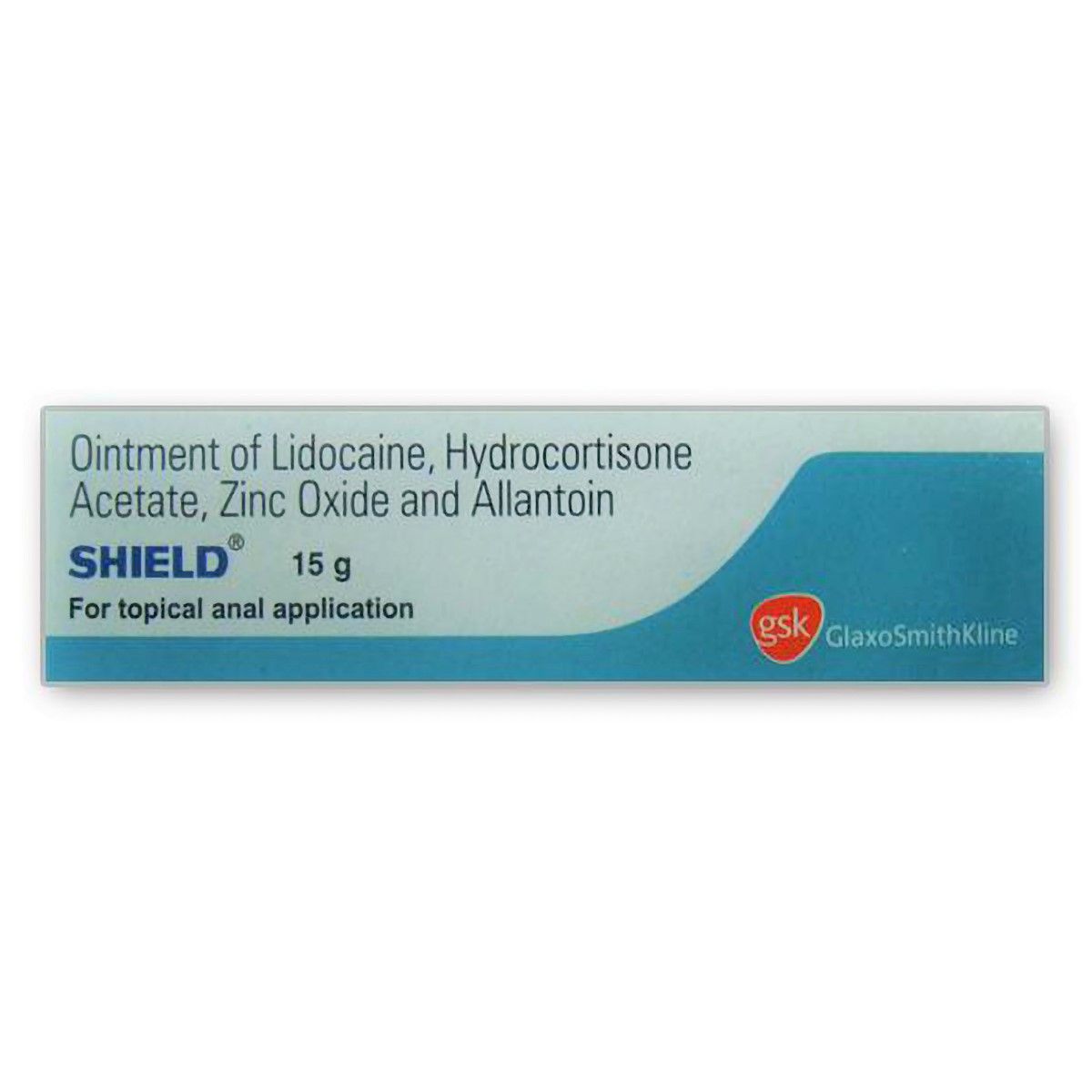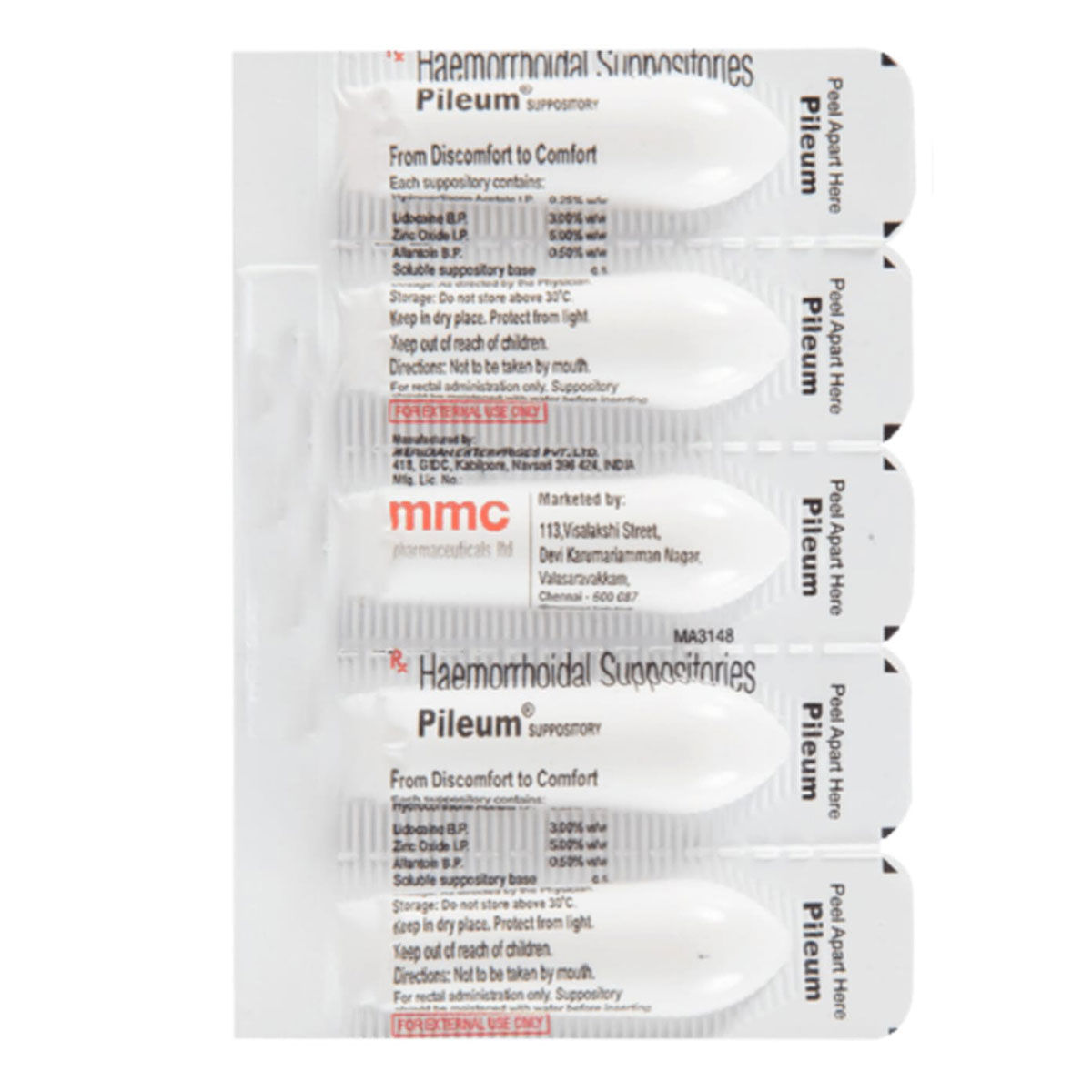Shield Ointment 15 gm
Shield Ointment is used to treat anal fissures, haemorrhoids (piles), and anal pruritus. It is also used in pre and post-operative treatment in anorectal examinations and proctologic surgery. It works by decreasing pain and discomfort. In some cases, this medicine may cause side effects such as a burning sensation, irritation, itching and redness at the site of application.
₹78.84*
MRP ₹87.6
10% off
₹74.46*
MRP ₹87.6
15% CB
₹13.14 cashback(15%)
Free Delivery
With Circle membership
(Inclusive of all Taxes)
This offer price is valid on orders above ₹800. Apply coupon PHARMA10/PHARMA18 (excluding restricted items)
Know Your Delivery Time
Provide Delivery Location


Secure Payment

India's Most Trusted Pharmacy

Genuine Products
Manufacturer/Marketer :
Consume Type :
Return Policy :
Expires on or after :
About Shield Ointment
Shield Ointment belongs to the group of medicines called anorectal preparations used to treat anal fissures, haemorrhoids (piles), and anal pruritus. Shield Ointment is also used in pre and post-operative treatment in anorectal examinations and proctologic surgery. Haemorrhoids, also known as piles, are the inflamed and swollen veins in the rectum and anus that cause discomfort, pain, and bleeding. An anal fissure is a small tear in the mucosa that lines the anus, which causes pain and bleeding during or after a bowel movement.
Shield Ointment is a combination of four drugs, namely: Allantoin (skin protectant), Hydrocortisone (steroid), Lidocaine (local anaesthetic), and Zinc oxide (antiseptic). Allantoin decreases pain and discomfort by shrinking the blood vessels in the affected area. Hydrocortisone helps in reducing itching, redness and swelling due to piles. Lidocaine blocks the pain signals from the nerves to the brain, decreasing the pain sensation. Zinc oxide has astringent, soothing, protectant and antiseptic properties. Together, Shield Ointment provides relief from pain and discomfort due to piles and anal fissures.
Shield Ointment is for external use only. You are advised to use Shield Ointment for as long as your doctor prescribes it, depending on your medical condition. In some cases, Shield Ointment may cause side effects such as a burning sensation, irritation, itching and redness at the application site. Most of these side effects do not require medical attention and will resolve gradually over time. However, you are advised to talk to your doctor if you experience these side effects persistently.
Do not use Shield Ointment if you had a skin reaction or irritation to any steroid medicine. Consult your doctor before using Shield Ointment if you are pregnant or breastfeeding. Talk to your doctor if you have any concerns regarding the usage of Shield Ointment in children. Do not use Shield Ointment for longer durations unless prescribed by your doctor. If your condition does not improve even after using Shield Ointment for 2-4 weeks, please consult your doctor. Inform your doctor about your health condition and medications to rule out any side effects/interactions.
Uses of Shield Ointment
Directions for Use
Medicinal Benefits
Shield Ointment is a combination of four drugs, namely: Allantoin, Hydrocortisone, Lidocaine, and Zinc oxide. Shield Ointment is used to treat anal fissures, haemorrhoids (piles), and anal pruritus. Shield Ointment is also used in pre and post-operative treatment in anorectal examinations and proctologic surgery. Allantoin is a skin protectant that decreases pain and discomfort by shrinking the blood vessels in the affected area. Hydrocortisone is a steroid that helps in reducing itching, redness and swelling due to piles. Lidocaine is a local anaesthetic that blocks the pain signals from the nerves to the brain, thereby decreases the sensation of pain. Zinc oxide has astringent, soothing, protectant and antiseptic properties. Together, Shield Ointment provides relief from pain, inflammation, and discomfort associated with piles and anal fissures.
Side Effects of Shield Ointment
- Burning sensation
- Irritation
- Itching
- Redness
Storage
Drug Warnings
Do not use Shield Ointment if you are allergic to any of its components; if you are taking anti-arrhythmic drugs or if you are suffering from bacterial, pathological, viral, fungal or parasitic infections. Do not exceed the dose and duration prescribed by your doctor. Consult your doctor if you are pregnant or breastfeeding. Shield Ointment should be used in children only if prescribed by a doctor. Do not use Shield Ointment for longer durations unless prescribed by your doctor. If your condition does not improve even after using Shield Ointment for 2-4 weeks, please consult your doctor. Inform your doctor about your health condition and medications to rule out any side effects.
Therapeutic Class
Diet & Lifestyle Advise
- Eat fibre-rich food and drink plenty of fluids. This helps to keep the stools soft.
- A warm bath helps in easing pain and itching.
- Keep your bottom dry and clean.
- Regular exercise is recommended.
- Avoid or limit alcohol and caffeinated products to prevent constipation.
- Empty your bowels whenever your body tells you to.
- Avoid pushing too hard while pooping as it can cause tearing of tissues.
- Include vegetables, fruits and whole wheat grains in your diet.
Habit Forming
How Shield Ointment Works
What if I have taken an overdose of Shield Ointment
Alcohol
Consult your doctor
It is not known whether Shield Ointment interacts with alcohol. Please consult your doctor.
Pregnancy
Consult your doctor
Please consult a doctor if you are pregnant. Your doctor will prescribe only if the benefits outweigh the risks.
Breast Feeding
Consult your doctor
Please consult your doctor if you have any concerns regarding this; your doctor will decide whether Shield Ointment can be used by breastfeeding mothers or not.
Driving
Safe if prescribed
Shield Ointment usually does not affect your ability to drive.
Liver
Consult your doctor
Please consult your doctor before using Shield Ointment if you have a liver impairment or any concerns regarding this.
Kidney
Consult your doctor
Please consult your doctor if you have any concerns regarding the usage of Shield Ointment in patients with kidney impairment.
Children
Consult your doctor
Please consult a doctor regarding the usage of Shield Ointment in children. Shield Ointment should be used in children only if prescribed by a doctor.
Country of origin
Manufacturer/Marketer address
Author Details
We provide you with authentic, trustworthy and relevant information
FAQs
Disclaimer
Product Substitutes











